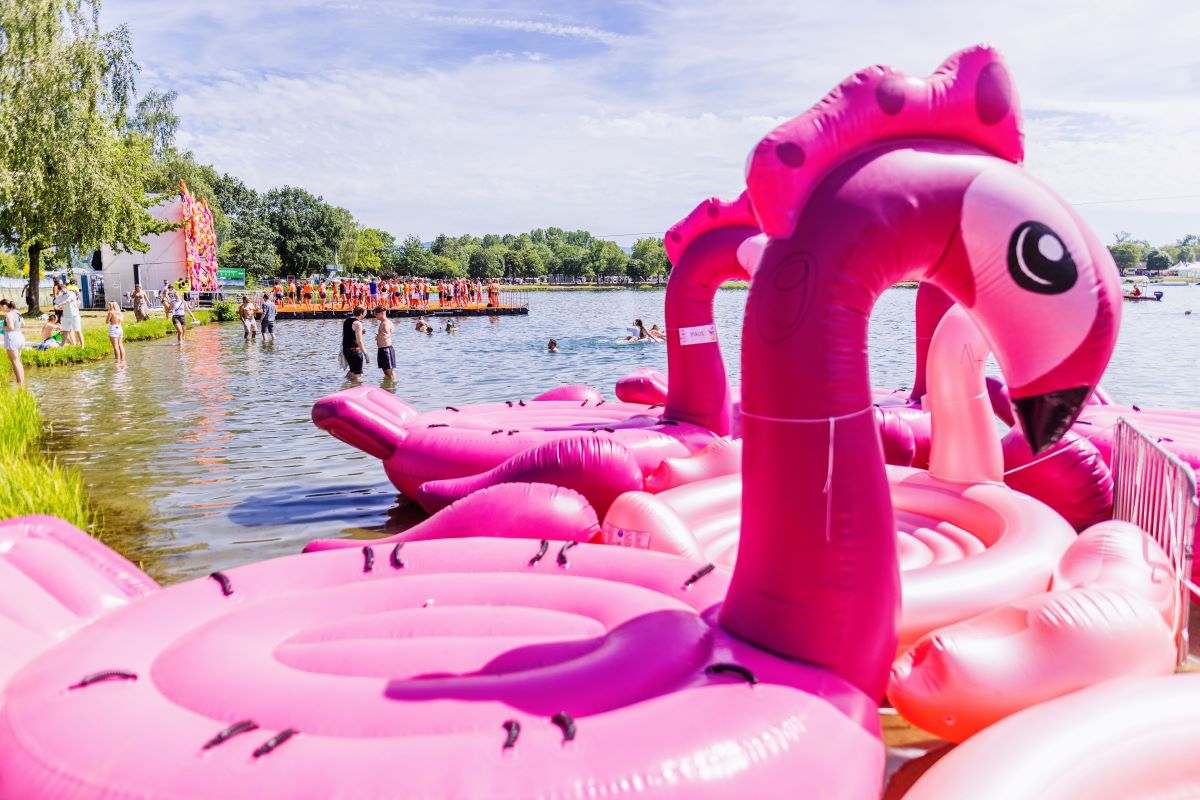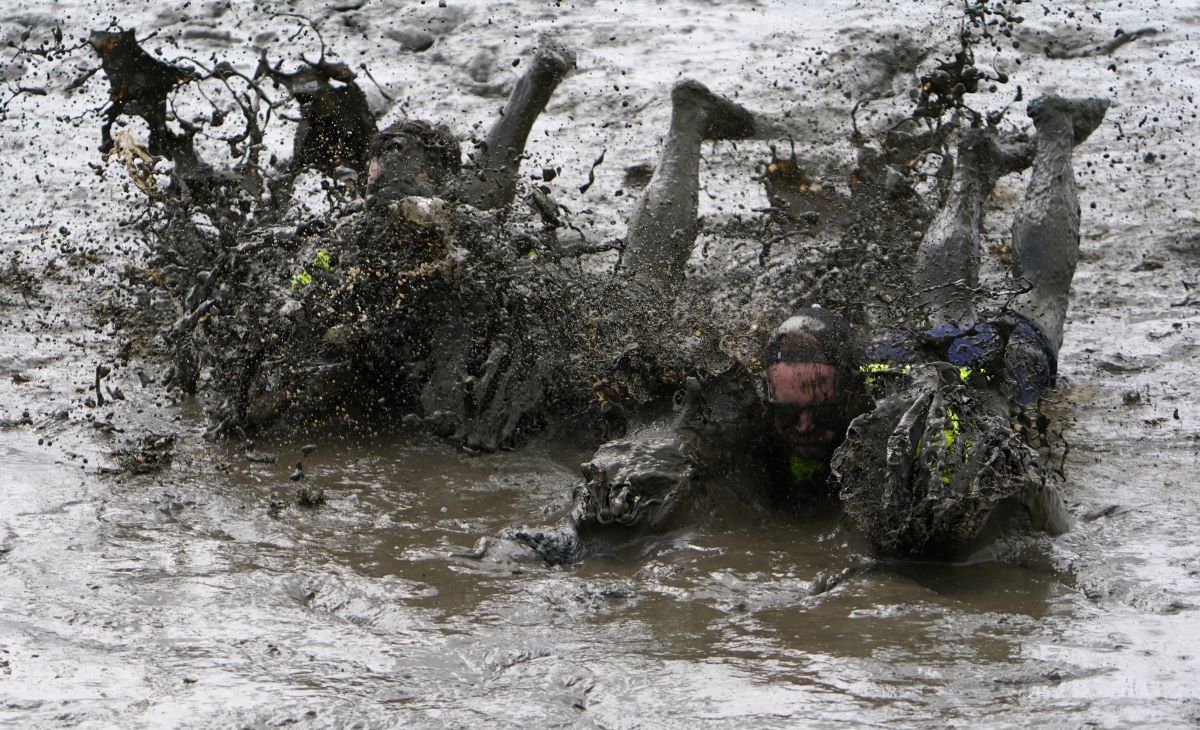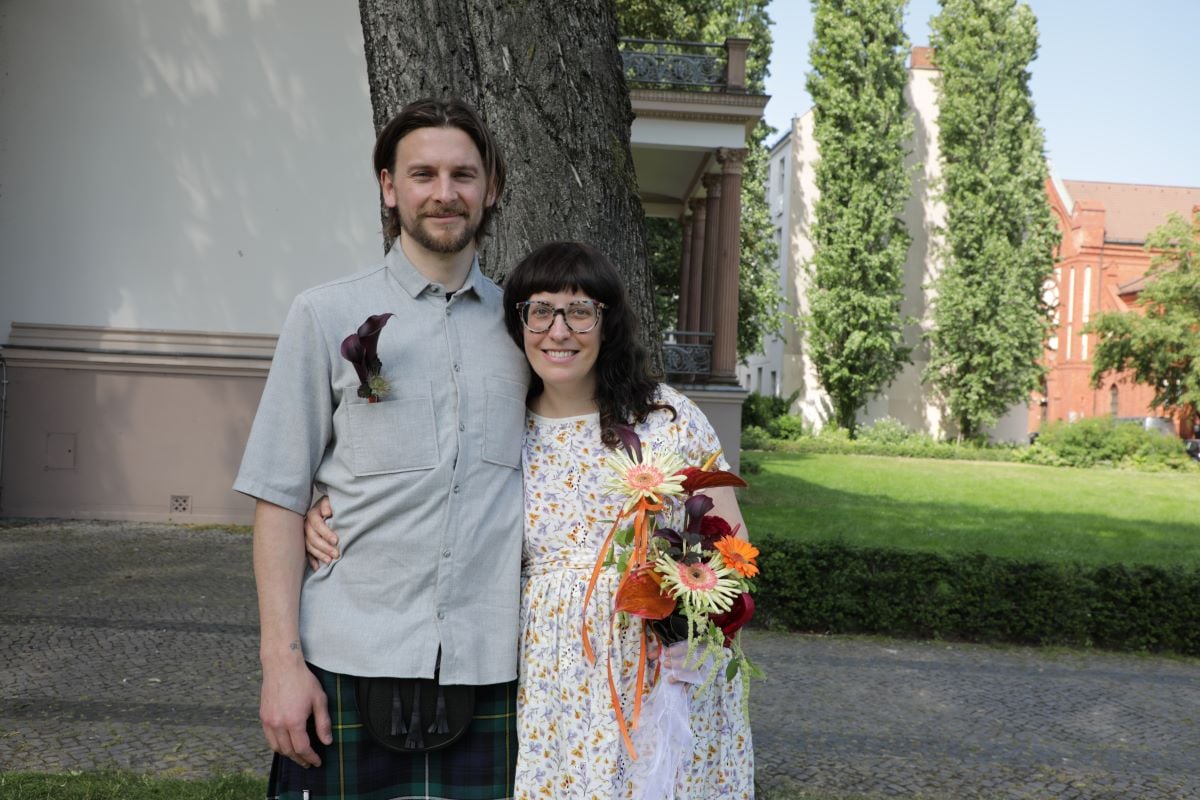The Würzburg Wine Village
Wine lovers in Germany would be well advised to start this summer with a visit to the Lower Franconian city of Würzburg to join in a celebration of the region’s 1,200-year-old wine-making traditions.
This year’s festival is scheduled from May 29th to June 9th, and takes place at Würzburg’s Upper and Lower Market Squares.
With 12 different innkeepers serving local wines and fare, bands performing traditional music, and the ‘Franconian Wine Princesses’ donning their dirndls, you can expect a stimulating atmosphere similar to that of a beer fest, but with a much bigger focus on grape-based libations.
If the Wine Village doesn’t work for your schedule, Würzburg hosts a number of wine fests from spring through early fall. The city’s wine events start in April with the ‘Wine Press Hall Festival’ (Kelterhallen Weinfest), and end with the city’s wine parade (Weinparade Würzburg) in September.
For more information see the Würzburg Wine Village website.
Rock im Park
One of Germany’s biggest rock music festivals, this year’s Rock im Park lineup has some big names that are sure to please rock fans who grew up in the 80s, 90s, or even after the 2000s.
Rock im Park takes place from June 7th to 9th in Nuremberg. Tickets include on-site camping.
With rock legends like Green Day and Queens, Dropkick Murphys and Queens of the Stone Age among the festival’s headliners, this year’s Rock im Park is sure to draw in quite the crowd.
Find more information at the festival website.
Sea You Festival
Some music festival goers seek out the best artist line-ups, whereas others seek out the best environments to camp and party in. Sea You Festival, self-described as “one of the most beautiful beach festivals in Germany” aims to deliver both.

This year Sea You will take place on the shore on Tunisee, near Freiburg, from July 19th to the 21st.
Located in one of Germany’s sunniest locales, Sea You is among the county’s warmest music festivals on offer. Visitors can float on the lake nearby to cool off between music performances at one of the festival’s seven stages.
More information and tickets can be found at Sea You’s website.
48 Stunden Neukölln
48 hours Neukölln is the largest independent art festival in Berlin, taking place in Berlin’s Neukölln neighbourhood each summer.
This year’s festival will begin on June 28th, and continue for two days with numerous events taking place in a multitude of venues throughout Berlin’s most ethnically diverse neighbourhood.
This year’s theme is “urban silence”. According to the events organisers, most related events will take place within walking distance of the Karl-Marx-Strasse, Boddinstrasse or Sonnenallee U-Bahn and S-Bahn stations.
More information and an event program is available on the event’s website.
Kieler Woche
This one is for sailors and sailing enthusiasts: based in the capital city of the northern state Schleswig-Holstein, Kiel week consists of a series of speed sailing races as well as music performances and other related events.
This year’s Kiel week officially starts on June 22nd, with ‘classic week’ (which includes races between bigger classic style sailboats) starting the week before.
The city of Kiel boasts a long history as a sailing hub – this will be the 143rd Kieler Woche. Watching a high-speed sailing race can be a thrilling experience for sailors and non-sailors alike, and the event offers an excuse to travel to the North Sea at the top of summer.
Find information in English here.
Eat Play Love
Boasting abundant street food, watersports, and live music – Cologne’s Eat Play Love festival has a little something for everyone looking to liven up their weekend with some summer vibes.
This year’s festival is scheduled to start on August 15th.
Located at Fühlinger See, Eat Play Love is readily accessible from Cologne by bus, S-Bahn or U-Bahn, and beyond its food and music offerings, it is host to a world class wakeboarding competition.
Find more information and tickets on the festival’s website.
Der Drachenstich
Every August Furth in Wald, a small Bavarian town near the Czech border, is home to Germany’s oldest folk theatre event, “The Dragon Sting.”
Based partly on myth and partly on regional history, Der Drachenstich, is an epic theatrical work complete with an enormous fire-breathing dragon.
In addition to the performance, visitors are invited to observe the pageant parade, on August 11th this year, which includes 1,200 costumed performers, 250 horses, Medieval carriages, cannons, palanquins, and music groups.
Find more information at the Drachenstich website.
Wattolümpiade
Each August the mud olympics, or Wattolümpiade, brings athletes from around the world to the banks of the Elbe River in Brunsbüttel to compete in a series of games, all in the middle of the river’s thick mud.

But according to the event’s organisers, this year’s Wattolümpiade on August 17th will be the event’s official finale.
While official registration for the event has already been filled, an announcement on the event website assures aspiring mud athletes that: “This much is certain: If you want to get dirty again for a good cause, you will definitely get the opportunity to do so.”
Competitive games include mudflat football, wading handball, and mud sled races among others, and the event is designed to raise money for cancer patients in Schleswig-Holstein.
More information is found at the Wattolümpiade website.




 Please whitelist us to continue reading.
Please whitelist us to continue reading.
Member comments